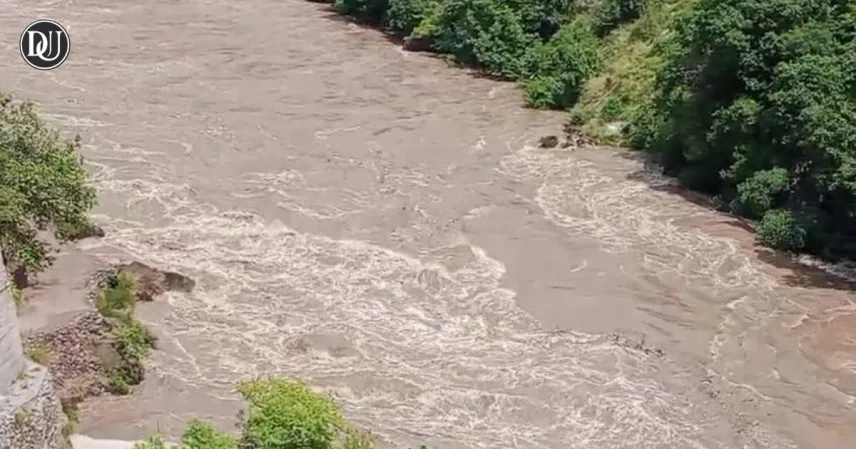In the picturesque valleys of Pakistan-occupied Kashmir (PoK), the Jhelum River, once a peaceful part of daily life, turned into a raging force on April 26, 2025. Without warning, the river’s waters surged, sweeping across the banks and flooding nearby communities. Families who lived alongside the river for generations found themselves in a desperate race against time to save what they could.
🏞️ A River That Became a Threat
For many people in PoK, the Jhelum River was a trusted part of their lives. It nourished the lands and provided water for agriculture. But that peaceful connection was shattered when the river’s calm waters suddenly turned violent. In moments, the water level rose, and areas that had once felt safe were submerged, leaving families scrambling to protect their homes and loved ones.
🚨 Desperation Sets In
In the district of Hattian Bala, the situation became unbearable. Muhammad Asif, a local resident, shared his harrowing experience: "The water came rushing in. We could barely do anything to stop it. All we could think about was saving our lives."
Thousands of families were left homeless, and many sought shelter in temporary relief camps. The flood had turned their lives upside down in the blink of an eye. People clung to whatever belongings they could carry, hoping they could rebuild their homes once the waters receded.
⚠️ Breach of Trust: The Controversy
The sudden release of water from the Uri Dam has ignited outrage across PoK. Local authorities are furious, arguing that they were not informed in advance about the release, which they say violates the Indus Waters Treaty. This agreement, signed in 1960, was supposed to ensure fair water sharing between India and Pakistan. Now, many feel betrayed by what they perceive as a reckless move that has left them at the mercy of the river.
🛑 Rebuilding and Recovery
While the floodwaters have started to recede, the emotional and physical scars remain. The people of PoK are beginning the long process of recovery, but questions about accountability still linger. They are rebuilding their homes and their lives, but the pain of the sudden and unexplained disaster will not fade quickly.
The residents of PoK are not just facing the challenge of recovery but also a deep sense of injustice. Their struggle is not just about rebuilding; it's about demanding answers and ensuring something like this never happens again.










